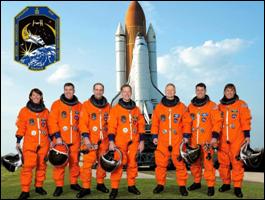HepaLife liver stem cell line launched onboard Space Shuttle
4 December 2008
A liver stem cell line developed by HepaLife Technologies, Inc. was launched on board Space Shuttle Endeavour on its recent 15-day mission in November. The Shuttle safely returned to earth on 30 November.
HepaLife's proprietary ‘PICM-19’ liver stem cell line was part of a scientific experiment to investigate the differentiation and function of stem cells in space. The research is being performed under the International Space Station National Laboratory initiative.
“We are honored that America’s space program has selected HepaLife’s liver cells to be part of this important space mission. This event is testimony to the outstanding liver-like functionality of these cells and supports our long-held conviction that our patented PICM-19 cell line is a one-of-a-kind cellular model,” stated Mr. Frank Menzler, President, CEO and Chairman of HepaLife Technologies, Inc.
In addition to serving as a model for stem cell differentiation and
function, HepaLife’s PICM cell line is particularly suitable for
assessing the effects of space flight and microgravity and on the
ability of the human liver to regenerate, a normal but crucial attribute
of the liver.
HepaLife’s PICM-19 cell line is the only stem cell known to successfully
differentiate into either bile duct cells or hepatocytes, the two cell
types that make up 98% of the liver's tissues and perform the vital
functions of the liver.
As such, the PICM-19 cells are an ideal in-vitro liver model for either hepatocyte differentiation and function, or bile duct differentiation and function — the primary role of the cells in experiments aboard the Space Shuttle Endeavour.
 Endeavour
was commanded by veteran space flier Commander Chris Ferguson, pictured
in the centre. Other crew members, pictured from left to right, are
Mission Specialists Sandra Magnus, Steve Bowen and Donald Pettit, Pilot
Eric Boe, Mission Specialists Shane Kimbrough and Heidemarie Stefanyshyn-Piper.
Image: NASA
Endeavour
was commanded by veteran space flier Commander Chris Ferguson, pictured
in the centre. Other crew members, pictured from left to right, are
Mission Specialists Sandra Magnus, Steve Bowen and Donald Pettit, Pilot
Eric Boe, Mission Specialists Shane Kimbrough and Heidemarie Stefanyshyn-Piper.
Image: NASA
The launch of HepaLife’s patented PICM-19 cells aboard the Space Shuttle Endeavour marks the Company’s first-ever participation in space flight microgravity experiments. To-date, HepaLife has acquired and developed its cell-based technologies as part of the Company’s efforts to develop the first-of-its-kind bioartificial liver device intended for the treatment of liver failure.
Recently, HepaLife announced completion of its acquisition of a novel liver support technology with important fast-track and orphan drug designations by the United States Food and Drug Administration, tested in America’s largest-ever human clinical trial for bioartificial liver assist devices. HepaLife significantly enhanced its cell-line supported bioartificial technology, bolstered the Company’s intellectual property portfolio, and substantially cut its time-to-market for a commercial bioartificial liver device.
Bookmark this page